Purim 2020
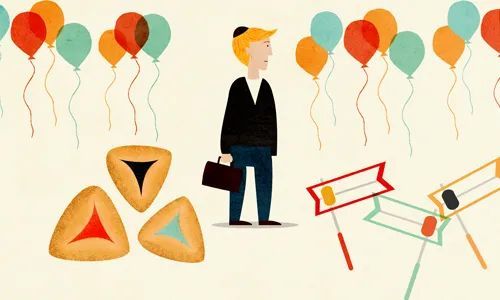
Purim 2020, like all Jewish festivals, is celebrated at the dusk of the previous secular day. (Starting in the evening of March 9th and ending in the evening of March 10th)
Purim (Hebrew: פּוּרִים, Pûrîm) is a festival to commemorate and celebrate the ancient Jews who lived in the Persian Empire from the destruction of the extinction, and to praise the heroism of Queen Esther. During this festival, Jews will wear exaggerated costumes and wear strange masks to participate in the carnival parade, so the festival was also known as Israel's "Carnival".

Origin of the holiday
According to the Hebrew calendar, Purim is celebrated annually on the 14th and 15th day of the Hebrew month of Ada, it is usually in March in the Gregorian calendar. According to doctrine and tradition, Jews in walled cities such as Jerusalem celebrate Purim on the 15th, while Jews elsewhere celebrate on the 14th.During the rule of the Persian Empire, Queen Esther used her wisdom to smash the conspiracy of Prime Minister Haman's attempt to kill Jews across the country and save the Jews from the danger of extermination. This festival is set up as a memorial.
The main record of Purim is found in the book of Esther in the Old Testament.
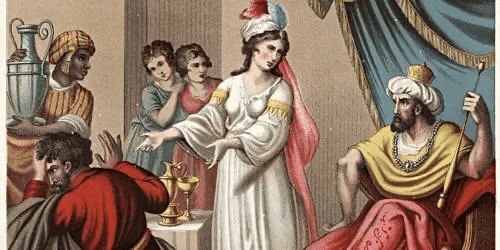
The story begins during the reign of Ahasuerus. The Jews Mordecai offended him by not bowing to Haman. Then, Haman deceived the king's decree and ordered it privately to choose December, which is the month of Adar, through the Purim (lots), to kill all Jews.
However, Haman did not know that Queen Esther was also a Jew, and even Mordecai's adopted daughter. At the current crisis, Esther invited the king and Haman to a banquet hosted by her. At the banquet, she revealed the conspiracy of Haman in public. The king was furious and ordered Haman to be hanged on a five-meter-high wooden stand and abolished the will of Haman.
Mordecai then obtained the king's permission to allow the Jews to gather to protect their lives and attack their enemies on the 13th of Adar. The Jews of Shushan City killed their enemies on the 13th and 14th, rested on the 15th and held feasts to celebrate victory; the Jews of the other provinces killed the enemies on the 13th and hosted feasts on the 14th.
Mordecai recorded that on the 14th and 15th of each year, when the Jews broke away from their enemies and turned their joys into joy, the Jews celebrated victory on these two days. According to the name of the lottery, "Purim," the Jews called the two days "Purim."
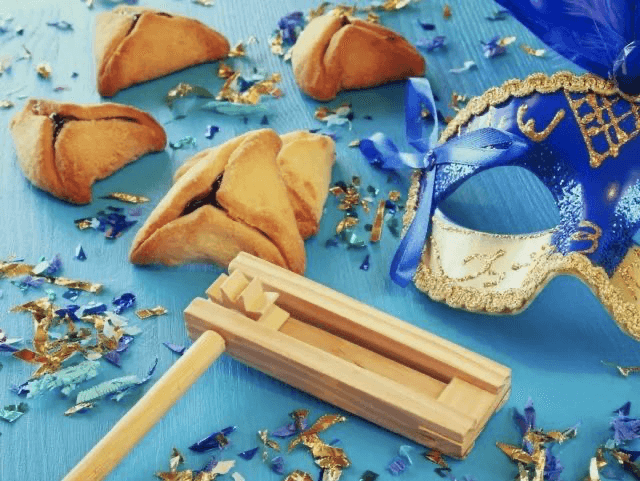
People also invented a triangular biscuit with fruit preserves or chocolates in the middle, and took an interesting and visual name called "oznei Haman (Haman's ears)" to express contempt for the bad guy Haman.
Nowadays, this kind of biscuit has gradually become a traditional food of Purim, and over time, Purim has also become a joyful festival for people to dress up and parade, and to drink wine.
Observances
Purim has more of a national than a religious character, and its status as a holiday is on a different level than those days ordained holy by the Torah. Hallel is not recited. As such, according to some authorities, business transactions and even manual labor are allowed on Purim under certain circumstances. A special prayer ("Al ha-Nissim" – "For the Miracles") is inserted into the Amidah prayers during evening, morning and afternoon prayer services, and is also included in the Birkat Hamazon ("Grace after Meals.")
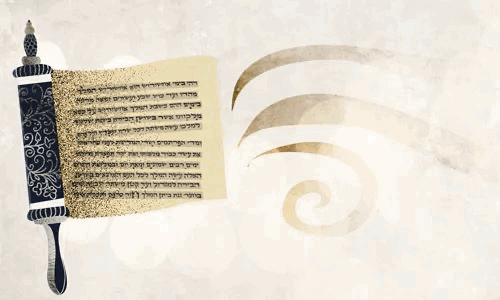
The four main mitzvot (obligations) of the day are:
- Listening to the public reading, usually in synagogue, of the Book of Esther in the evening and again in the following morning (k'riat megillah)
- Sending food gifts to friends (mishloach manot)
- Giving charity to the poor (matanot la'evyonim)
- Eating a festive meal (se`udat mitzvah)
This year, many synagogues chose to recite Esther live so that people could watch it at home. Some synagogues read many times at different times to limit the size of the gathering.
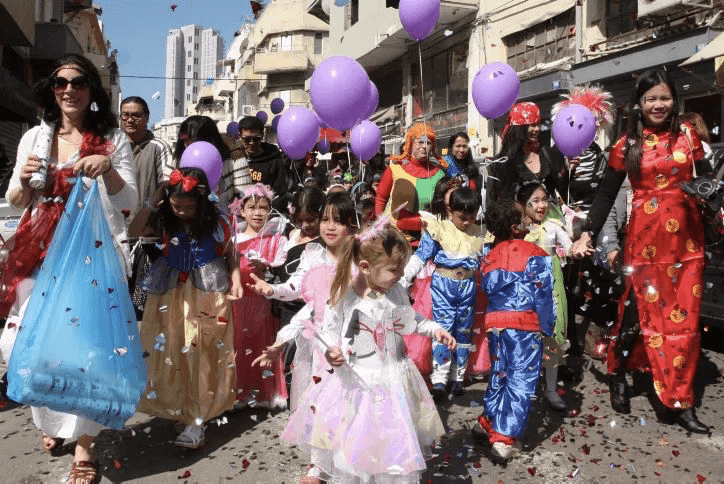
Jewish Carnival
There are many activities to celebrate Purim in Israel, but they are all related to "joy". Celebrations include drinking, banquets, group singing, dancing, fireworks at parties, masks, alms to the poor, and gifts to neighbors.
Purim is the only festival in Israel that allows orthodox Jews to drink alcohol. Every time the festival comes, people have to hold a grand banquet, everyone can drink and enjoy the sweetness of Israeli wine.
At the same time, every family lit the lights and held various celebrations. The most important thing is the bonfire party. Young people put on masks, sing and dance around the campfire, and have fun.

Orthodox Jews fast one day before Purim. On the day of Purim, Jews will hold a special ceremony to read the Bible Esther. This is to make people remember history and remember Queen Esther's wisdom and courage. During the reading process, every time Haman's name was mentioned, the children participating in the ceremony made a "pop" sound with bamboo or rattan to show their condemnation.

The most popular clothing theme this year seems to be COVID-19 - many children dressed up as doctors and rescue workers, or mimicking thousands of people who have been forced to isolate, wearing surgical gloves, gowns and masks.